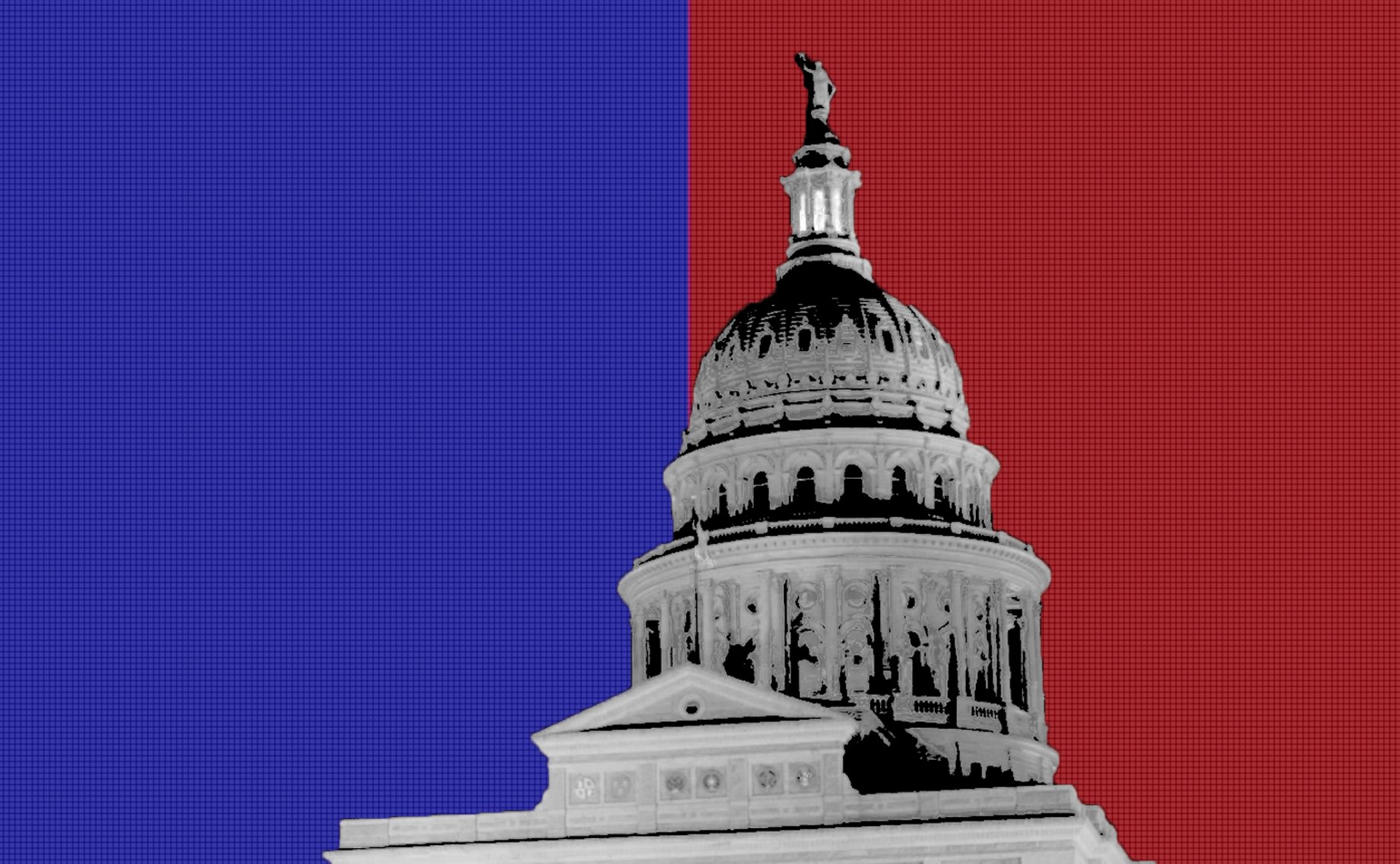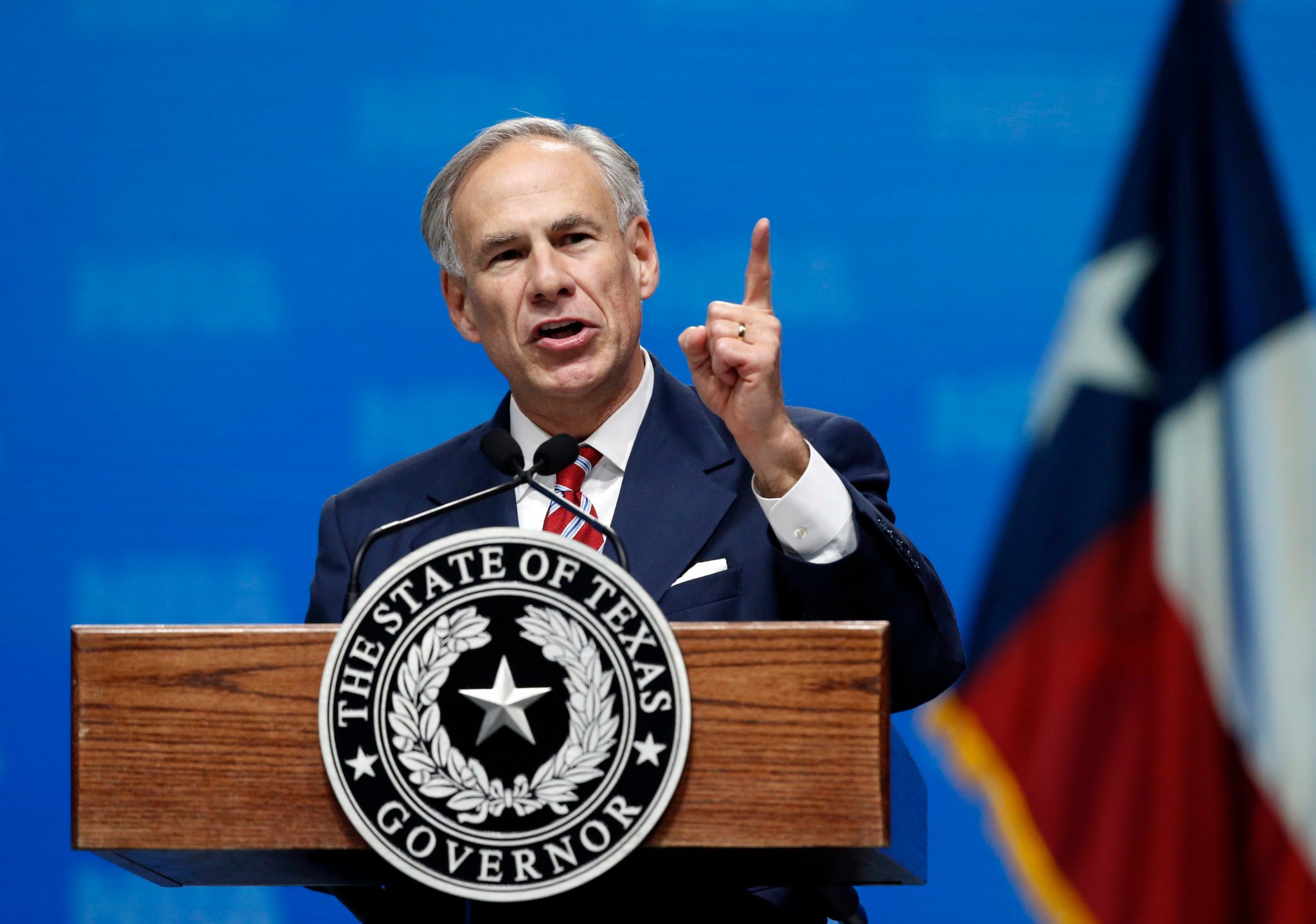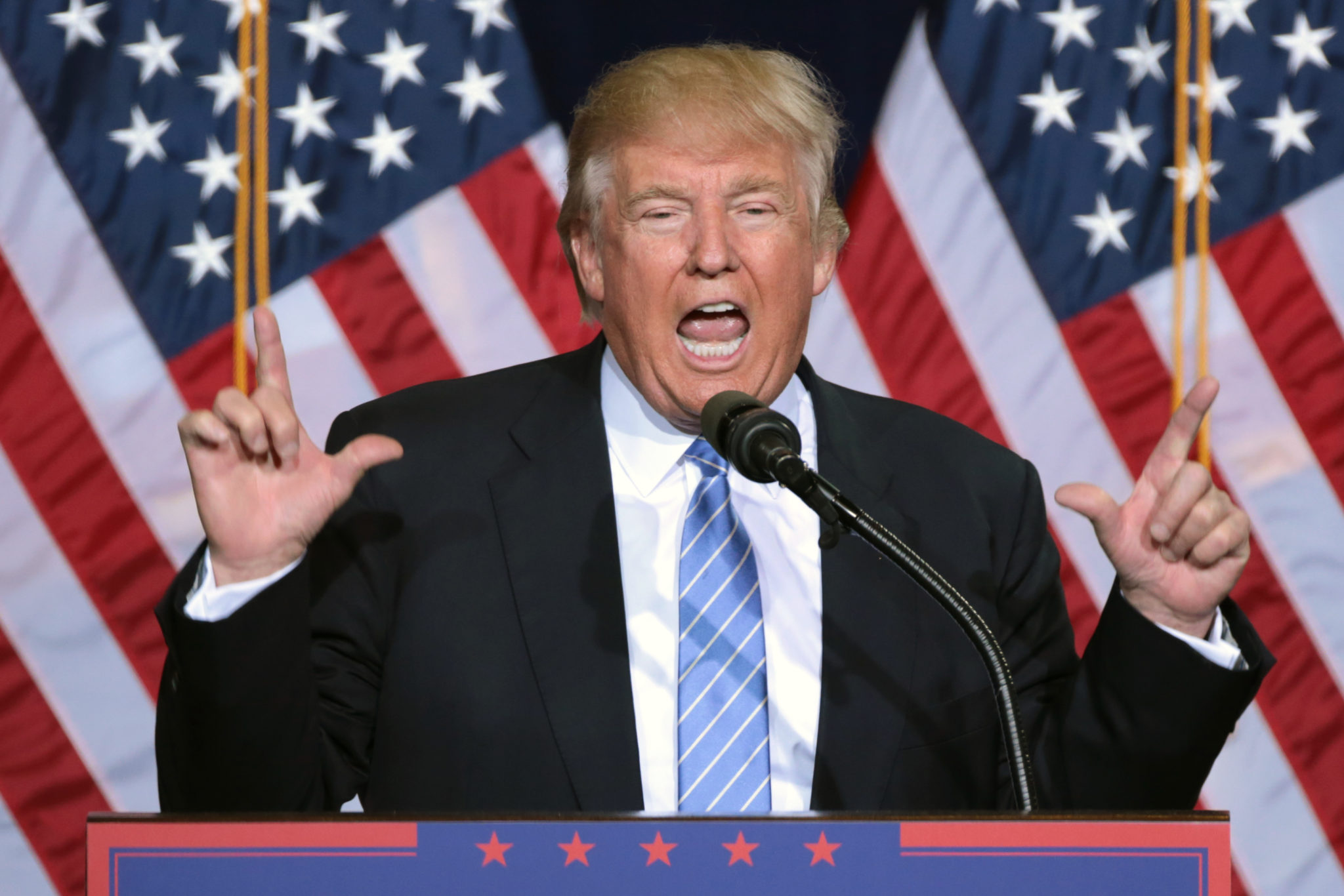
The Little-Known Theology Behind White Evangelical Support of Donald Trump
Christian virtues like love, mercy and forgiveness apply to individuals, not government, according to Two Kingdoms theology deployed by evangelicals like Dallas pastor Robert Jeffress.

Above: Donald Trump speaking to supporters at an immigration policy speech at the Phoenix Convention Center.
As news of Donald Trump’s alleged affair with a porn star heated up the airwaves this month, Robert Jeffress, a Dallas megachurch pastor and Trump religious adviser, assured Fox News viewers that the affair is “totally irrelevant” to his fellow evangelicals. In fact, Jeffress said this week that Trump “is the most faith-friendly president we’ve ever had.”
That’s more than a little surprising, considering how conservative Christian leaders castigated Bill Clinton for his sexual misdeeds back in the 1990s. And Jeffress himself, an outspoken supporter of the idea that America is a Christian nation, argued in his 2016 Twilight’s Last Gleaming that Christian leaders are preferable to non-Christians because their “core beliefs” work to restrain them from “immorality” and “corruption.”
But that was before Trump’s surprise electoral victory. Since then, Jeffress’ message seems to have changed. He’s said that a president shouldn’t embody Jesus’ teachings in the Sermon on the Mount. And he recently praised an article that declares it’s “out of place” to try “to force Gospel principles on the state.”
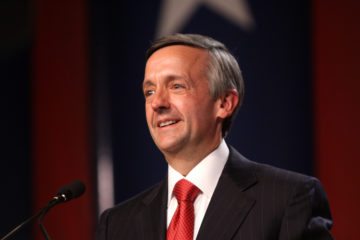
Not surprisingly, some accuse Jeffress, chosen by Trump’s campaign for a spot on his unofficial evangelical advisory board in 2016, of inconsistency or even hypocrisy. As one writer put it, “America is only a Christian nation when it’s convenient.”
But we miss something important about Jeffress — and white evangelical support for Trump, generally — by writing him off as a hypocrite. In defending Trump, Jeffress has consistently deployed a theology of government, little-known outside scholarly circles, that draws on biblical teaching. And that theology — along with the dark vision of a fallen America that Trump shares with Jeffress and other white evangelicals — offers a clue to the mystery of their support for the foul-mouthed, twice-divorced tycoon in the White House.
“The Bible never calls on government to act as a Good Samaritan.”
Though most white evangelicals continue to back the president, a vocal minority has taken a prophetic stance, warning that Trump’s policies, especially on immigration, are unjust and unbiblical. For instance, Jim Wallis, the editor of Sojourners, a progressive, faith-based magazine, citing Jesus’ call to care for the strangers among us, has labeled Trump’s DACA proposal “anti-family, anti-American and anti-Christ.”
In a January tweet, Jeffress dismissed such criticisms as “baloney” and recommended an article by Alan Atchison on “the biblical view of government.” Though Atchison never uses the term, he deploys what is known as “Two Kingdoms” political theology, which dates back to 16th-century theologian Martin Luther. Atchison accuses Trump’s evangelical critics of confusing what God intends for government with what God intends for individuals. Christian virtues like love, mercy and forgiveness apply to individual persons, not government, Atchison argues. Citing 1 Peter 2:13-17 and Romans 13:3, he says that government’s purpose is to maintain order and punish evildoers. Thus, he concludes, evangelicals who try “to force Gospel principles on the state” are simply wrong-headed.
Read this extremely well-written article on the biblical view of government. Cuts through a lot of the baloney coming from some evangelical quarters. https://t.co/nhDLWuVkGZ
— Dr. Robert Jeffress (@robertjeffress) January 22, 2018
It’s easy to see why Jeffress likes this article: He himself has deployed Two Kingdoms thinking repeatedly since the presidential election.
Defending Trump’s 2017 refugee ban, Jeffress said, “While Scripture commands individual Christians and churches to show mercy to those in need, the Bible never calls on government to act as a Good Samaritan.” In the wake of Trump’s “fire and fury” threats against North Korea, Jeffress claimed that “God has given Trump authority to take out Kim Jong Un.” He added, “A Christian writer asked me, ‘Don’t you want the president to embody the Sermon on the Mount?’ … I said absolutely not.” While in a February op-ed he did advocate protection for DACA recipients, saying that “mercy and grace in governmental policy cannot be completely ignored,” he also insisted that “the Bible never commands government to ‘forgive’ or ‘turn the other cheek’ as it does individuals.” Jeffress’ office did not respond to multiple requests for comment for this article.
As far as Jeffress and his followers are concerned, so long as the president maintains what they understand as order and punishes what they consider evil, his personal moral failings are irrelevant.
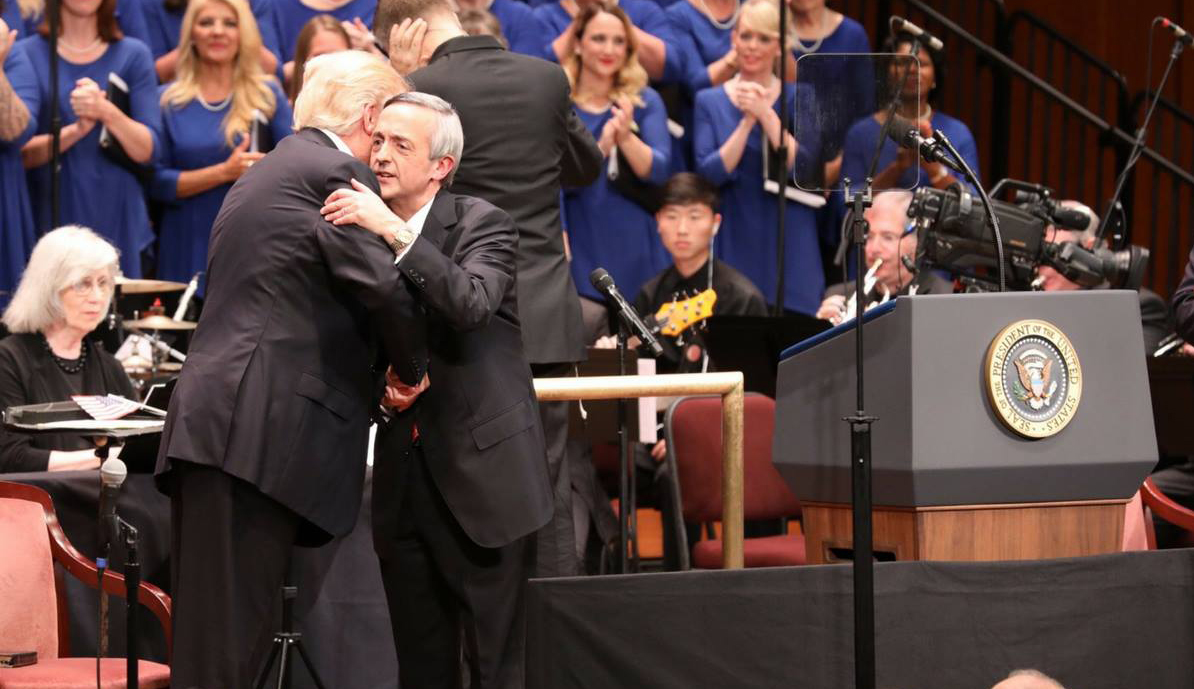
For Jeffress, limiting immigration is part of maintaining order. In that February op-ed, he argued that any government “has both the right and the responsibility to restrict immigration, whether for the protection of its citizens or whatever reason it deems necessary.” As for addressing evil, Twilight’s Last Gleaming highlights what Jeffress apparently deems America’s greatest sins: abortion, homosexuality and what he claims is widespread “discrimination against Christians” (a belief many evangelicals share, despite evidence to the contrary).
But other evangelical leaders caution that support for Trump comes at a cost.
Darrell Bock, a professor at Dallas Theological Seminary who has criticized Trump’s immigration policies, said evangelical support for Trump “severely undercuts the credibility of key concerns the church has about character, its importance, the role of leaders in forming cultural character and why the Gospel is not only about forgiveness but making a proper kind of humbling and reformation before God.”
“If you mix ice cream and horse manure it doesn’t do much to the horse manure, but it sure does ruin the ice cream.”
Bock agrees with Jeffress that government should maintain order and provide security. But he believes that government should also be concerned “for the human condition of people made in God’s image.”
Messiah College history professor John Fea warns that Jeffress’ close ties to Trump could hurt Christianity. “Historically, whenever … ministers get involved in politics it ends up being bad for the church,” Fea says. He quotes an old Baptist saying: “If you mix ice cream and horse manure it doesn’t do much to the horse manure, but it sure does ruin the ice cream.” Ministers, Fea contends, “must always be in the business of speaking truth to power. And there is a LOT of truth that needs to be spoken to Donald Trump.”
So while Jeffress’ unstinting support for Trump may be more theological than hypocritical, the question remains: Has he sold his prophetic birthright for a mess of pottage at Trump’s table?

